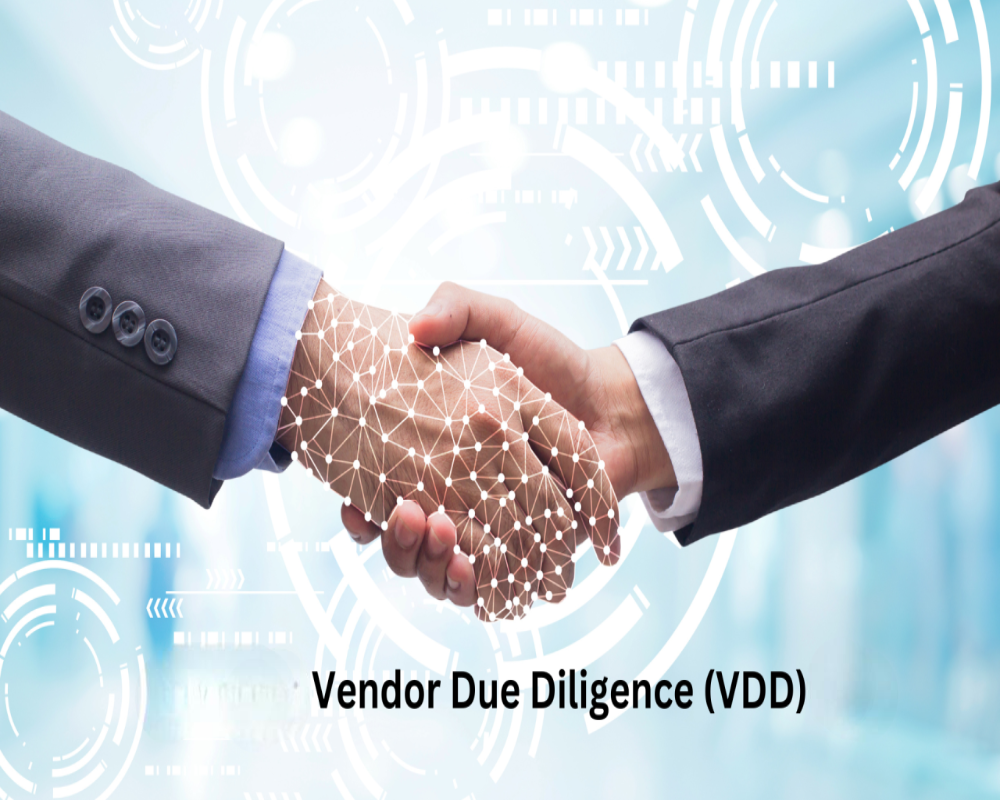Introduction
Vendor due diligence for industries is the structured process of evaluating the credibility, capabilities, compliance, and overall suitability of third-party suppliers or service providers before entering into a formal business relationship. In industrial operations—where efficiency, quality, and regulatory compliance are critical—selecting the right vendors plays a vital role in maintaining the integrity of the supply chain, ensuring timely delivery, and minimizing operational risks. A thorough vendor due diligence process not only helps protect the company’s reputation and bottom line but also lays the foundation for building long-term, value-driven partnerships.
Understanding the Scope of Vendor Due Diligence
Vendor due diligence is more than just a background check. It is a comprehensive assessment that spans financial stability, legal compliance, operational capacity, technical competence, environmental responsibility, and adherence to industry-specific standards. The goal is to confirm that the vendor has the resources, systems, and reliability to meet the expectations of the industrial client.
For example, manufacturers sourcing raw materials or components must ensure that their vendors comply with quality control standards, follow environmental regulations, and have contingency plans to manage supply disruptions. In doing so, companies reduce the likelihood of project delays, quality defects, or regulatory penalties.
Evaluating Financial and Legal Standing
One of the first steps in vendor due diligence is to assess the financial health of the potential vendor. This involves reviewing audited financial statements, credit ratings, payment histories, and debt obligations. A financially unstable vendor may pose a risk of defaulting on deliveries or failing to maintain service standards.
Legal standing is equally important. Businesses must verify that the vendor is duly registered, holds all necessary licenses and certifications, and is not involved in ongoing litigation or disputes. Reviewing contracts, indemnities, and liability clauses helps in mitigating legal risks and ensuring that the vendor relationship complies with applicable laws.
Assessing Operational and Technical Capabilities
Vendors must be evaluated based on their ability to meet production requirements, delivery timelines, and technical specifications. This includes analyzing manufacturing capacity, equipment quality, workforce skills, quality assurance systems, and safety protocols.
Site visits, sample inspections, and certifications such as ISO 9001 or industry-specific standards can provide additional assurance of the vendor’s technical competence. In industrial projects that rely on precision and consistency, this assessment is crucial for maintaining product quality and compliance.
Compliance with Environmental and Social Standards
In modern industrial procurement, sustainability and corporate social responsibility are integral to vendor selection. Due diligence should include verifying that vendors comply with environmental laws, manage waste responsibly, and avoid practices that harm ecosystems or communities.
Additionally, vendors should demonstrate ethical labor practices, such as fair wages, safe working conditions, and no involvement in child labor or discrimination. This is particularly important for companies that prioritize ESG (Environmental, Social, and Governance) principles and seek to align their supply chain with global sustainability goals.
Reviewing Risk Exposure and Business Continuity
An effective vendor due diligence process also involves identifying potential risks such as geopolitical exposure, single-source dependency, supply chain disruptions, and cybersecurity threats. Companies must assess whether the vendor has adequate risk mitigation measures and business continuity plans in place.
For critical suppliers, backup vendors or alternate sourcing options should be considered to ensure operational resilience. In high-stakes industrial environments, having a contingency plan in place can make the difference between uninterrupted production and costly downtime.
Establishing Ongoing Monitoring and Evaluation
Vendor due diligence does not end once the contract is signed. Continuous monitoring is essential to ensure that the vendor maintains performance and compliance throughout the partnership. This includes periodic audits, performance reviews, compliance checks, and feedback mechanisms.
Using vendor management systems (VMS) or integrating due diligence results with enterprise resource planning (ERP) tools allows companies to track vendor data, flag potential issues early, and make data-driven decisions on renewals, renegotiations, or exits.
Conclusion
Vendor due diligence for industries is a strategic and essential process that ensures a robust, compliant, and reliable supply chain. By thoroughly evaluating a vendor’s legal, financial, operational, and ethical standing, companies can minimize risks, uphold quality, and foster sustainable partnerships. In an increasingly complex and interconnected industrial landscape, effective vendor due diligence is not just a best practice—it is a critical element of business continuity, brand reputation, and long-term success. Through a diligent and systematic approach, industries can build trusted supplier networks that support efficiency, compliance, and resilience.
Hashtags
#VendorDueDiligence #DueDiligence #VendorManagement #RiskAssessment #SupplyChainManagement #BusinessCompliance #IndustryStandards #VendorRisk #Procurement #BusinessStrategy #FinancialStability #VendorEvaluation #ComplianceMatters #RiskMitigation #SupplierAssessment #BusinessIntegrity #IndustryInsights #VendorRelationships #OperationalExcellence #DueDiligenceProcess


